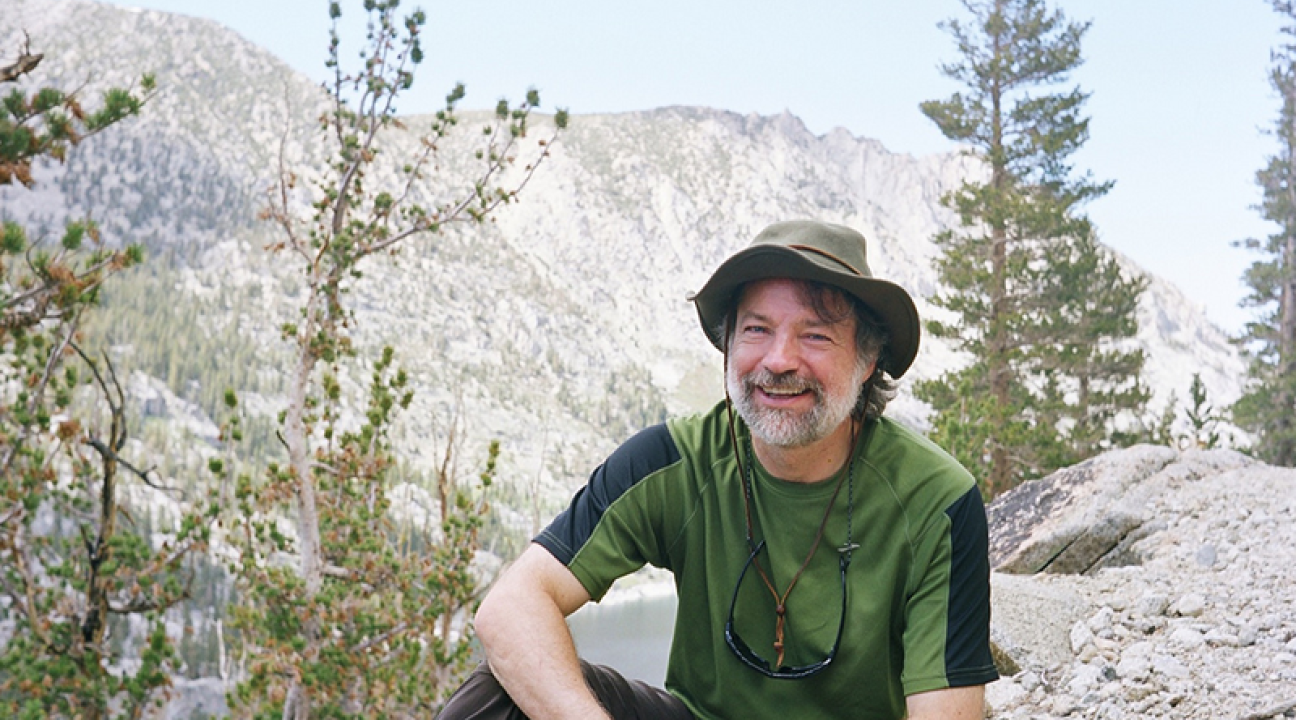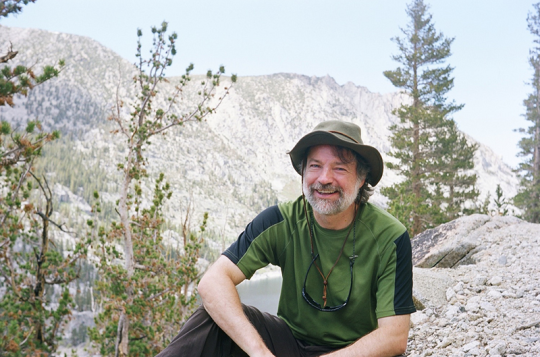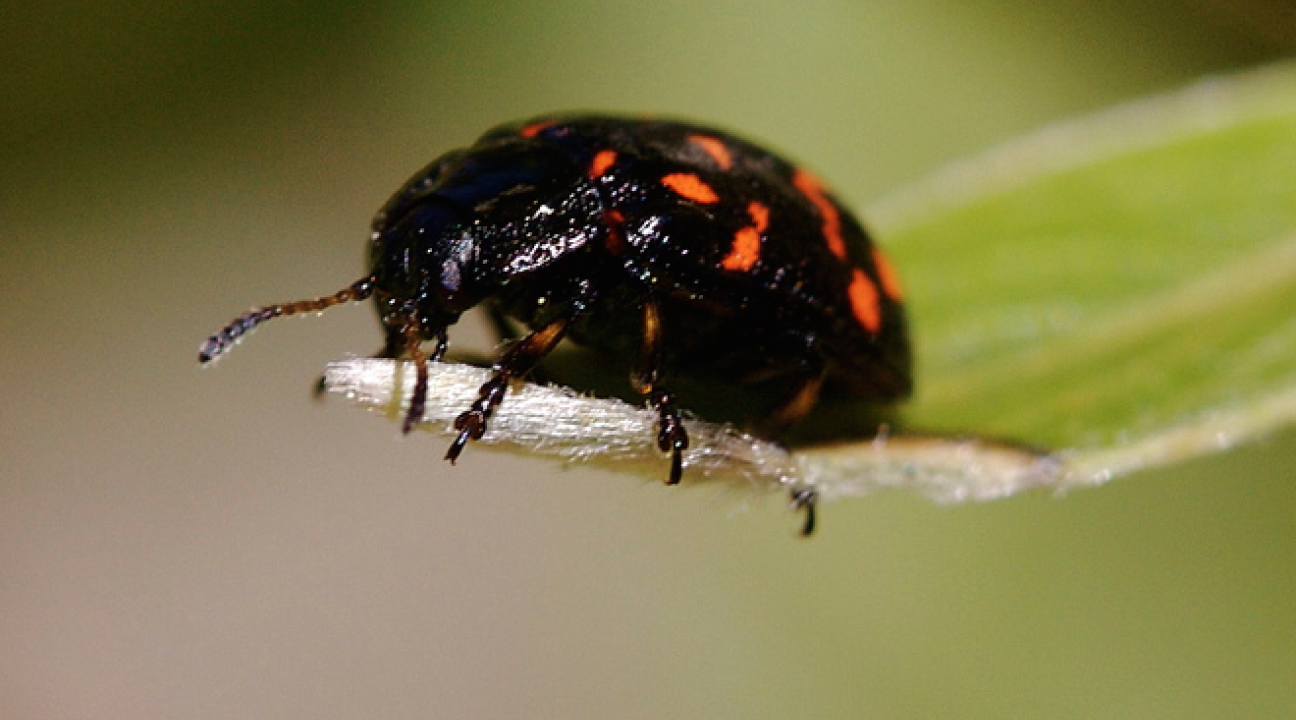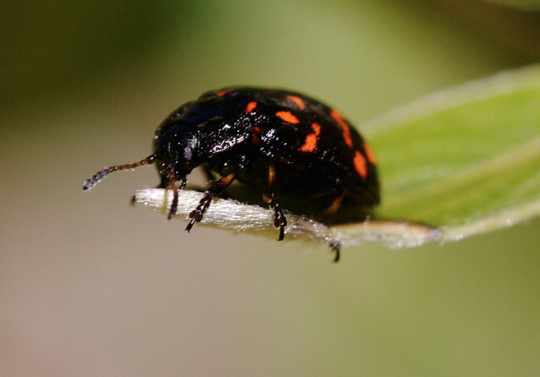Discovering the Beetles
Insects Still Yielding New Discoveries for Biology Professor
Sonoma State biology professor Nathan Rank visits Bishop so often, "it's almost like a second home," he says, speaking on a spotty cell phone connection from the eastern California mountain town of Bishop. He's been spending summers surrounded by breathtaking scenery of the Sierra Nevada since 1984 studying the montane leaf beetle, and will continue to do so for the next three years thanks to a $400,000 grant from the National Science Foundation.
"We are looking at how genetic differentiations within populations might help survive a really wet or dry year." He adds, "Since this year is extremely dry year, we are making sure to document the populations very carefully."
Specifically, Rank studies genes in the mitochondria of cells. The mitochondria play a role in regulating metabolism, and in previous studies, some genes in the beetles seem to perform better at different elevations. "Metabolism determines how much energy you have to cope with stress," says Rank. That includes stress from, say, unexpected and prolonged climate change.
In 2008, Rank published a paper on the implications for persistence of native populations enduring climate change. Now, with new knowledge of climate change and genetics in the past seven years, Rank's beetle research is more important than ever.
Rank is currently finishing work on a project funded by another NSF grant awarded five years ago, aimed at understanding the genetic differences between individuals, and whether they can identify genes that contribute to the stability of populations.
The new grant allows Rank and his team to look into how genes from the mitochondria are interacting with genes in the nucleus, a new discovery that has also been seen in fruit flies and a small marine crustacean, says Rank. "And there's no reason why it couldn't happen in humans too," he adds. "We're kind of just scratching the surface."
Rank is conducting this research with UC Santa Clara biology professor and former SSU professor Elizabeth Dahlhoff, along with students from both universities and an American working at the University of Stockholm, professor Christopher Wheat, who processes and analyzes genetic data collected in the field. The team is focusing on comparing the development rate, performance and ability of the beetles to survive stressful heat exposure at different oxygen levels by analyzing specimens from different elevations.
Though he's been coming to the same area, studying the same creatures since 1984 (with a seven year break to study in Europe), Rank still gets a kick out of his work. There are always new pieces of the puzzle to discover, and the promise of new technology only makes the research that much more exciting. "I get excited when I get over here, and it's always great to bring new students into the project," he says.





